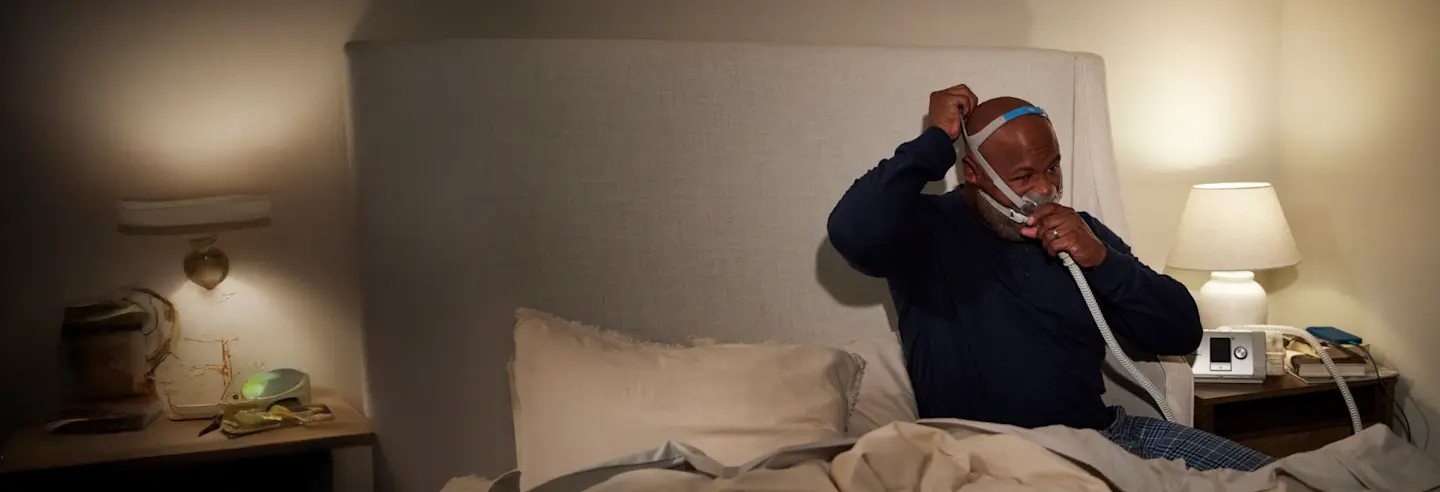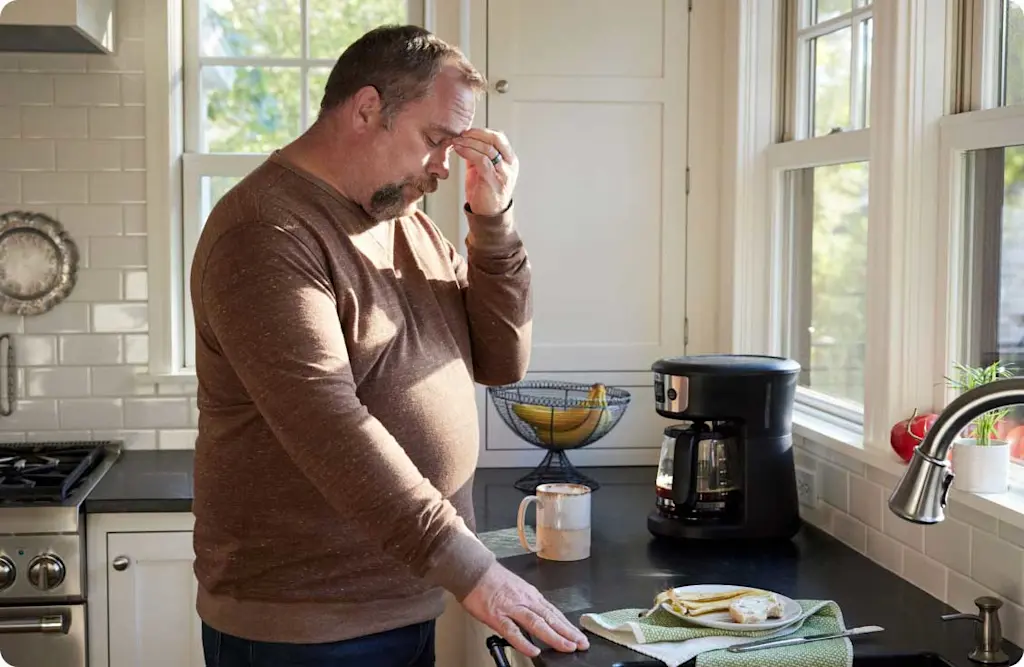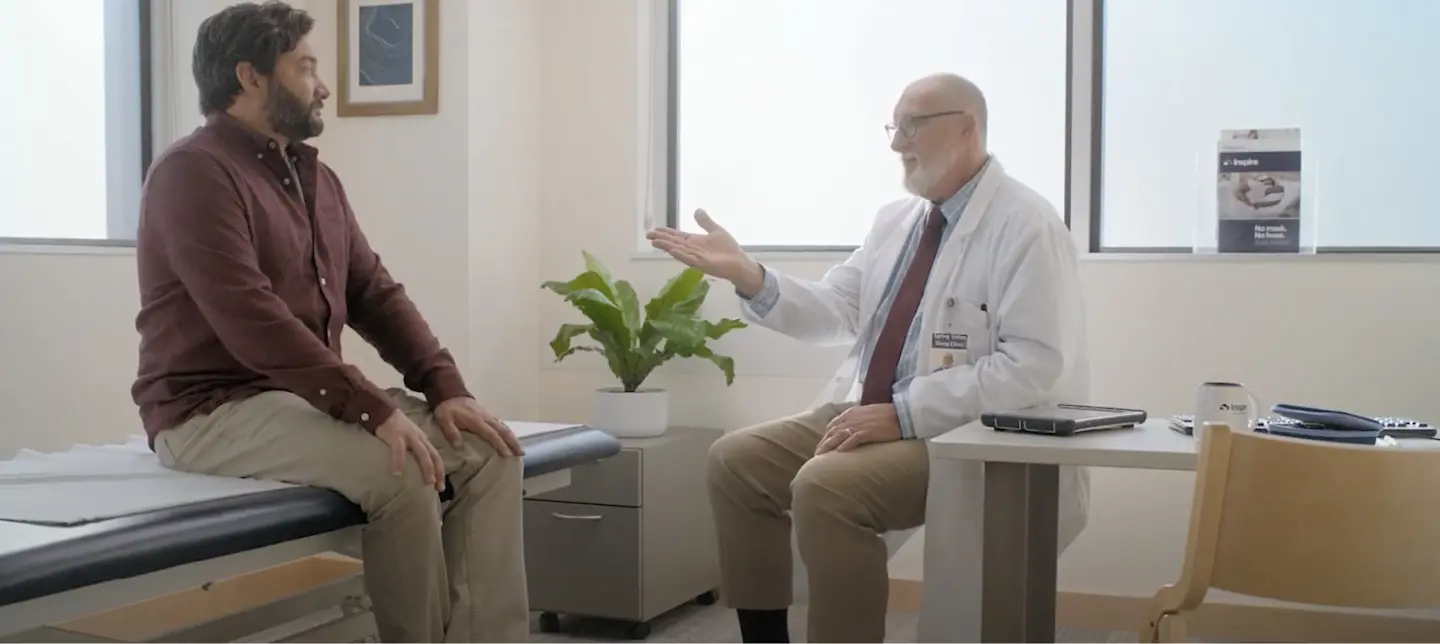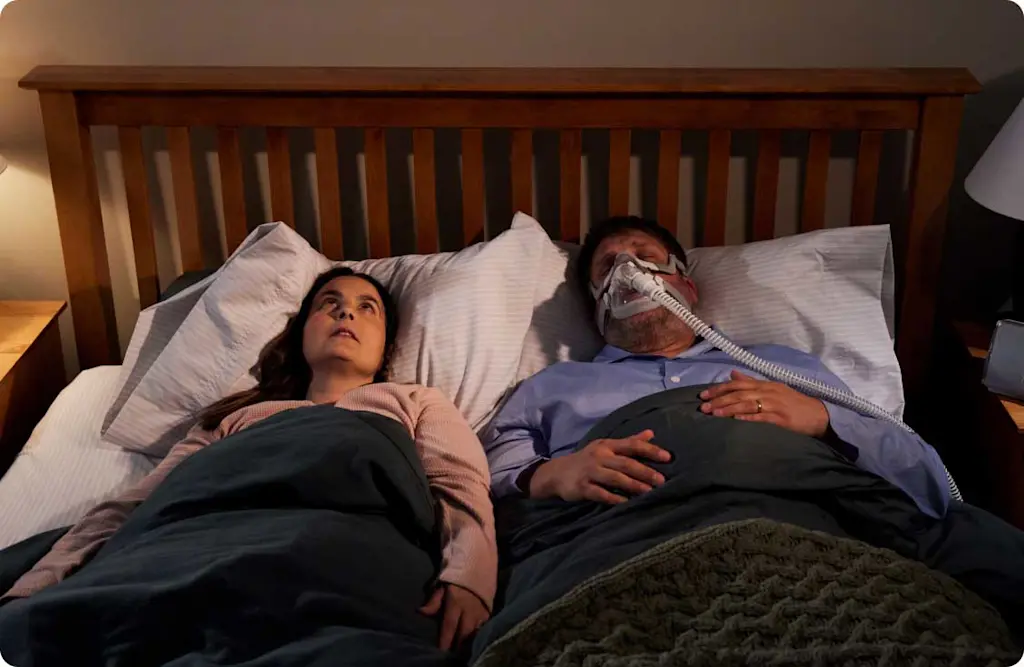What is sleep apnea?
Sleep apnea is a potentially serious sleep disorder where breathing is repeatedly interrupted during sleep.

Types of Sleep Apnea
If you snore loudly and feel tired even after a full night’s sleep, you might have sleep apnea.
If you think you have sleep apnea, talk to your doctor. Treatment can ease your sleep apnea symptoms and help prevent the serious health and qualify-of-life risks associated with a chronic lack of sleep.
Obstructive Sleep Apnea (OSA)
Obstructive Sleep Apnea is the most common type of sleep apnea. It occurs when the tongue and other throat muscles relax during sleep, causing your airway to temporarily close.
Central Sleep Apnea (CSA)
Central Sleep Apnea occurs when your brain forgets to breathe during sleep.
Complex or Mixed Sleep Apnea (CompSA)
Complex Sleep Apnea occurs when both obstructive sleep apnea events and central sleep apnea events occur during sleep.


Signs and symptoms
Some of the symptoms of OSA and CSA overlap, making it difficult to determine which type you have. The most common signs and symptoms of sleep apnea include:
Gasping for air during sleep
Waking up with a dry mouth
Morning headaches
Irritability
Episodes where you stop breathing during sleep, reported by another person
Daytime fatigue
Difficulty staying asleep
Difficulty paying attention while awake
Difficulty thinking clearly
Snoring, including snoring that is especially loud and involves gasping, choking or snorting
Common treatment for OSA
CPAP therapy is the most common treatment prescribed for people with moderate to severe OSA. While some patients experience symptom relief with CPAP, it doesn't work for many – about half of people1 who are prescribed CPAP therapy struggle or stop using it.
If you have OSA and struggle with CPAP, Inspire® therapy may work for you. Watch the video below or visit the FAQ page to learn more.
You should always consult your doctor about your concerns.








How does Inspire® therapy treat OSA?
Inspire therapy works differently from other OSA treatments you've tried. Instead of using a machine outside of your body to force air into your airway through a hose and mask, the Inspire® implant works comfortably3 inside your body to treat the root cause of your obstructive sleep apnea.
When we sleep, our airway muscles and tongue relax. For people with OSA, the tongue relaxes into a position that blocks the airway.
When your airway is blocked you get less oxygen to your brain, triggering you to wake up to take a breath. This cycle happens repeatedly, preventing quality sleep.
The Inspire implant delivers gentle pulses that move your tongue out of the way each time you take a breath, keeping your airway open while you sleep soundly. No mask or hose required.
Do I qualify for Inspire therapy?
People with OSA experience repeated sleep disruptions and shallower overall sleep, which can lead to sleep deprivation. When you live with OSA, you're at a higher risk for serious health concerns – like Type 2 diabetes, stroke, heart attack, depression and a shortened life span – and harm your overall quality of life.2

